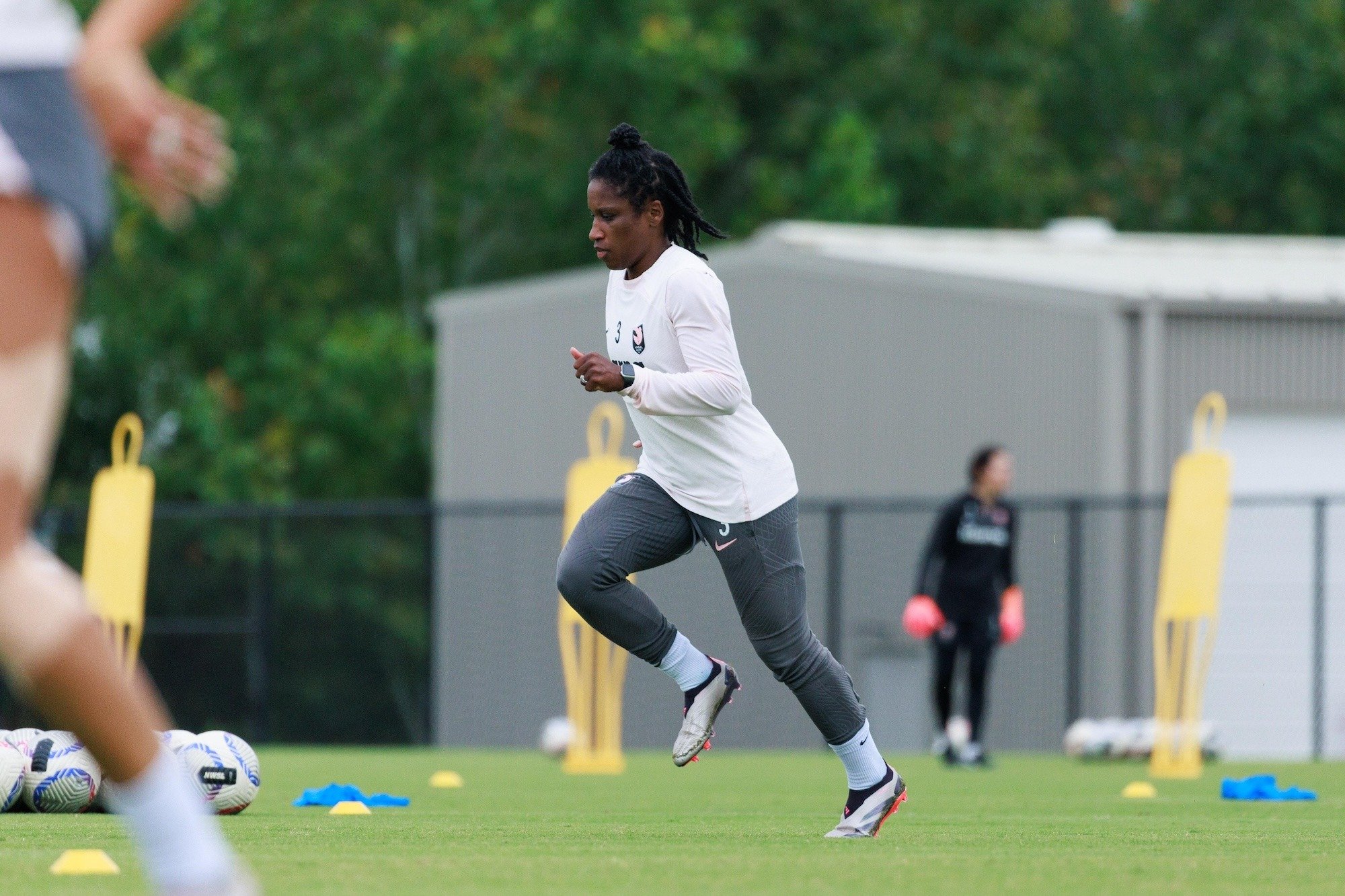

Welcome to The Breakdown, where Angel City players break down the basics of the game to help you understand what they do on the pitch. This week, defender Jasmyne Spencer gives the basics on two widely used terms that describe different styles of play: playing direct and playing in a possession-based style.
AngelCity.com: Could you explain, at the most basic level, the difference between playing direct versus playing in a possession-based style?
Jasmyne Spencer: A direct team is looking to get the goal as quickly as possible in as few passes as possible. A possession based team is looking to pass the ball more to manipulate another team to get to goal. It requires a little bit more patience and tactical understanding of the other team’s formation. You’re trying to move the ball in such a way that you can create overloads and exploit open spaces in their formation.
ACFC: How might a team that plays more direct look to attack?
JS: I don't know if I would want to say [they use] long balls, because it's not always a long ball. The simplest way to explain it is just getting the ball towards goal as quickly as possible. That can be a team that sits off and defends in a low block in anticipation to win the ball off of you and counterattack; or sometimes it's a team that plays a long ball in behind to turn you over. Sometimes it's a team that will bait you with a couple of passes and then [play forwards]—there are different ways to be more direct for sure.
ACFC: What are the potential vulnerabilities of each of these styles—what do they need to be aware of defensively?
JS: I can speak in the context of the NWSL, which I think is considered a more direct league because as a whole, players in the league are all very athletic. And so even if you are a possession-style team, if you [force a turnover], counterattacking is the most effective way to score, because the team is more expansive [i.e., the opposing players are more spread out]. There's more space in behind and you can go to goal very quickly. So even the best teams in the NWSL at possession are also still scoring a lot of goals in a direct manner, because everyone is such a good athlete that you can just exploit the open space and go straight to goal if you win the ball while they're expansive.
ACFC: What are some of the key players needed by a team that plays a more direct style?
JS: This is a hard question, because you need all different styles of players in both scenarios.
I would say [to play direct effectively], you need people who are aggressive, willing to be workhorses on defense, because winning the ball back creates counter-attacking opportunities.
I'm not going to say athletic because everyone is athletic in this league. I feel like people think for a direct style, you need fast players, but everyone's fast in the NWSL—Sarah Gorden is the fastest player on our roster and she's our center back. So I’m not going to say that. I would say for sure you need clinical finishers, because you're probably going to have less of the ball, and you're willing to give that up because you're going to try to generate more counter counterattack opportunities.
ACFC: What types of players does a more possession-heavy team need to be effective?
JS: People who are comfortable on the ball. People who are tactically aware and savvy. People who are very composed and of course, finishers. Generally, people who have a high soccer IQ.





